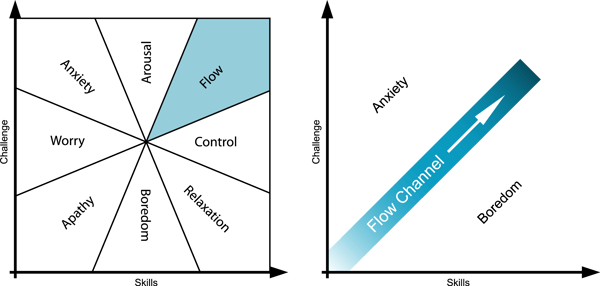 Time flies when you're having fun.
Time flies when you're having fun.
Business education and corporate training is aimed mostly at adult learners who already have knowledge and experience in the field they wish to improve. They are usually very eager to apply and test their learning in a real-life scenario. If you also consider that business simulations allow their participants to apply several business concepts concurrently, so that they get a holistic understanding of the business decision-making process, then it becomes obvious why business simulations are an ideal tool for adult business education.
Bringing enjoyment to the learning board
Moreover, game-based learning tools (such as business simulations) are the best suited to approach subjects that are technical, complex or intrinsically difficult to teach or communicate, and/or that require planning, analysis, strategic thinking and in general assessing different possible outcomes.
Other elements important for the enjoyment of business simulations are that their contents be up to date, the good usability and intuitiveness of the platform, and the possibility to play against other participants (which motivate simulation players more than playing against an A.I.).
When all these elements coincide, the participants of a business simulation game undergo a fulfilling and optimal experience. This is important since the level of enjoyment is a key factor to determine how engaged a participant will be in the learning activity, as well as if the objectives of the learning experience will be achieved.
Getting in the flow
If business simulation participants get absorbed by the gameplay experience, it is likely that they have reached a state called Flow. This frame of mind is characterized by being fully committed to an activity, leaving behind any emotion or thought that is not relevant for its completion. Flow is not exclusive of gaming and is in fact most well-known among high-achieving athletes and artists (who sometimes describe it as "being in the zone").
A business simulation game that maximizes flow will provide its participants with a good challenge-skill balance, clear goals, and feedback. Flow is mostly achieved when the levels of challenge of the game and of the skills of a participant are matched, and it is more likely to happen when both challenge and skills are high. Additionally, the clarity of the goals and the availability of feedback help keep the participant in the zone where they can get the best out of the learning experience.

Mental state and flow channel according to Mihaly Csikszentmihalyi (Finding Flow, 1997).
Achieving flow has a positive influence in the outcomes of a game-based learning experience. When in this state, participants stay engaged in and focused on the learning subject of their class or training, and their investment in the simulation game becomes directly proportional with a deeper learning experience.
What immersive business simulation gameplay feels like

Once a business simulation participant has achieved flow, they are likely to experience a sense of being in control of their own actions, spending long periods of time invested in the game without noticing, and a feeling of reward that comes solely from playing the simulation.
As an example, Simon Testard, a student from Maestris Sup (France), recalls fondly the time he and his classmates spent playing our Hotel and Restaurant Management Simulation Cesim Hospitality:
I have rarely been so motivated by a school project. All this week of Serious Game I got up early in the morning, sleeping late at night. I took little time for lunch, even my girlfriend had trouble getting me for her without me talking about my hotel/restaurant! This is one of the few times in my life that I have been so inspired, so motivated on a professional school project. I am even sad that it is finished, I would have liked to enjoy another week! Even others in my class were fully invested in the project, everyone loved it.
Read more educational success stories >>

On the side of corporate training, Katherine Moore, from London-based consultancy company Parker Fitzgerald, mentions how the fun of playing our Banking & Financial Services Business Simulation Cesim Bank became a crucial part in internalizing the contents of their training:
"The simulation gives a really good overview of the various products offered by a bank. It has a lot of detail about what certain products are and how banks run. The different departments such as marketing, finance, HR and so on. And because it’s all done in a fun way it’s something you really remember, rather than when just reading a book. It gave us a really good foundation, and because it was fun we really engaged with it."
Read more corporate success stories >>

Read more:
- Using business simulations in higher education from a student's point of view
- The power of business simulations in corporate training - A blog post by Graeme Kirkup
- Business simulations – as close as it gets to the real deal
- Business Simulations help achieve learning goals and acquire skills

